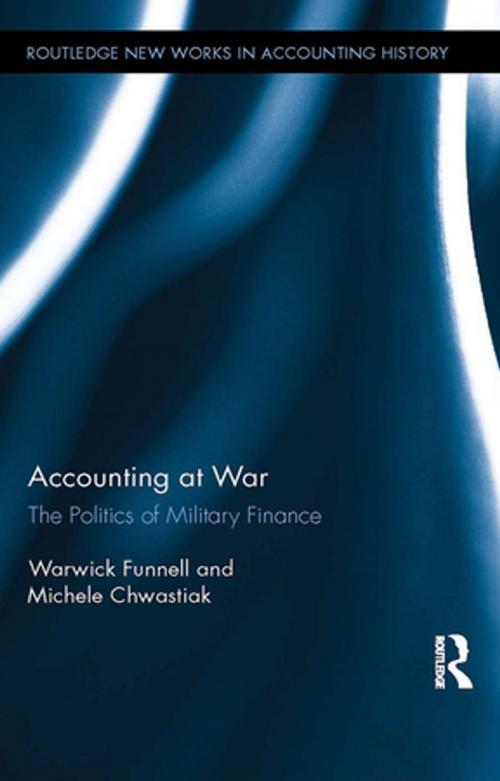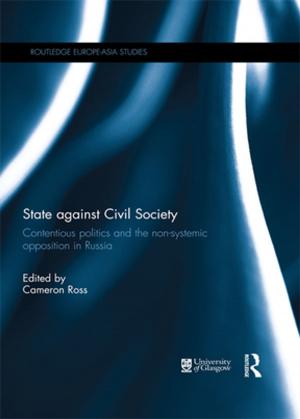| Author: | Warwick Funnell, Michele Chwastiak | ISBN: | 9781317508472 |
| Publisher: | Taylor and Francis | Publication: | March 24, 2015 |
| Imprint: | Routledge | Language: | English |
| Author: | Warwick Funnell, Michele Chwastiak |
| ISBN: | 9781317508472 |
| Publisher: | Taylor and Francis |
| Publication: | March 24, 2015 |
| Imprint: | Routledge |
| Language: | English |
Accounting is frequently portrayed as a value free mechanism for allocating resources and ensuring they are employed in the most efficient manner. Contrary to this popular opinion, the research presented in Accounting at War demonstrates that accounting for military forces is primarily a political practice. Throughout history, military force has been so pervasive that no community of any degree of complexity has succeeded in.
Through to the present day, for all nation states, accounting for the military and its operations has primarily served broader political purposes. From the Crimean War to the War on Terror, accounting has been used to assert civilian control over the military, instill rational business practices on war, and create the visibilities and invisibilities necessary to legitimize the use of force.
Accounting at War emphasizes the significant power that financial and accounting controls gave to political elites and the impact of these controls on military performance. Accounting at War examines the effects of these controls in wars such as the Crimean, South African and Vietnam wars. Accounting at War also emphasizes how accounting has provided the means to rationalize and normalize violence, which has often contributed to the acceleration and expansion of war.
Aimed at researchers and academics in the fields of accounting, accounting history, political management and sociology, Accounting at War represents a unique and critical perspective to this cutting-edge research field.
Accounting is frequently portrayed as a value free mechanism for allocating resources and ensuring they are employed in the most efficient manner. Contrary to this popular opinion, the research presented in Accounting at War demonstrates that accounting for military forces is primarily a political practice. Throughout history, military force has been so pervasive that no community of any degree of complexity has succeeded in.
Through to the present day, for all nation states, accounting for the military and its operations has primarily served broader political purposes. From the Crimean War to the War on Terror, accounting has been used to assert civilian control over the military, instill rational business practices on war, and create the visibilities and invisibilities necessary to legitimize the use of force.
Accounting at War emphasizes the significant power that financial and accounting controls gave to political elites and the impact of these controls on military performance. Accounting at War examines the effects of these controls in wars such as the Crimean, South African and Vietnam wars. Accounting at War also emphasizes how accounting has provided the means to rationalize and normalize violence, which has often contributed to the acceleration and expansion of war.
Aimed at researchers and academics in the fields of accounting, accounting history, political management and sociology, Accounting at War represents a unique and critical perspective to this cutting-edge research field.















